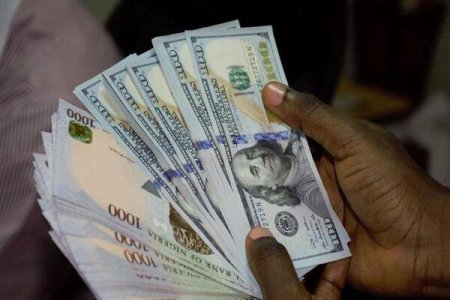
The Nigerian Naira plummeted to an alarming N1,600 against the US dollar on Thursday, casting a harsh spotlight on the ongoing economic challenges during President Bola Tinubu's tenure. Despite efforts by the Central Bank of Nigeria to mitigate the free fall of the Naira, the currency's downward spiral has accelerated.
The Naira's struggle against the dollar predates Tinubu's presidency, but the situation has worsened since he assumed office last May. The freefall gained momentum following the decision to float the currency, a move that triggered a historic dip in September when the Naira exchanged at N1,000 to one dollar at the parallel market, exposing the weaknesses in Tinubu's currency management efforts amidst runaway inflation.
The Association of Nigerian Licensed Customs Agents (ANLCA) raised concerns about the impact of floating the currency on vehicle importation in the nation's ports, adding another layer to the economic challenges. Recent data from Naira Rates indicates that the Naira fell to N1,520.123 to a dollar on January 31, marking a significant depreciation from the official foreign exchange rate recorded on January 30.
A sharp decline occurred within 24 hours, with the official exchange rate surpassing the parallel market rate for the first time since the post-COVID-19 era. The report by Price Water Coopers highlighted that Tinubu's economic policies, including scrapping fuel subsidies and consolidating foreign exchange windows, led to a drastic 98% depreciation in the Naira's value.
Despite the negative impact on inflation and economic purchasing power, the move was projected to appeal to foreign investors and improve the economy in 2024, according to Price Water Coopers. The report, titled 'Nigeria’s Economic Outlook: Seven Trends That Will Shape Nigerian Economy in 2024,' emphasized the domino effect of Tinubu's policies on the Naira's devaluation.
As the Naira hit an unprecedented historical low on September 26, reaching N1,000 against the US dollar, it has since lost 17% of its value. The persistent decline raises concerns and sheds light on the challenges associated with President Bola Tinubu's fiscal policies. Despite resistance and skepticism, Tinubu's administration has undertaken strategic moves such as petrol subsidy removal and the adoption of a clean float foreign exchange management in an attempt to reshape the economy. The consequences of these decisions, including inflation and reduced purchasing power, continue to shape the economic narrative under President Tinubu's watch



![Today's Naira Rate [27-04-2024]: Nigeria's Naira Bounces Back Strong, Hits 1,280 Against Dollar](/data/attachments/203/203376-fac0fa1defd2c5f3b205505ee482c7dc.jpg)
